#CertifiedTranslators
Explore tagged Tumblr posts
Text
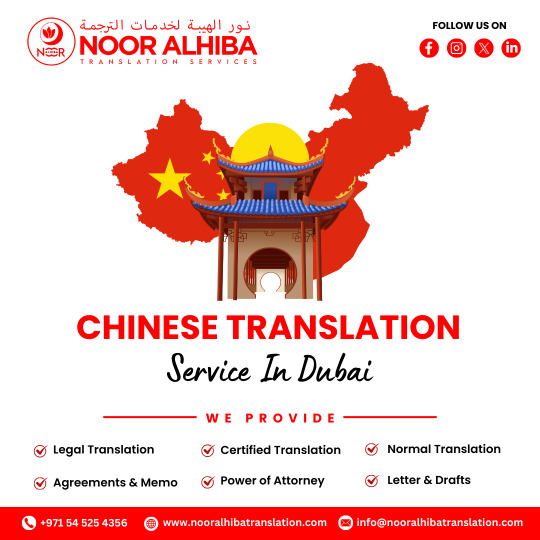
Need Accurate Chinese translation in Dubai? Noor Alhiba has you covered! 📜✅ From business deals to personal documents, we ensure quality translations you can trust. 🌟 Reach out now!
Connect confidently today! 📞 +971 545254356 ✉️ [email protected] 🌐 www.nooralhibatranslation.com 📱 https://www.instagram.com/nooralhibatranslation
#TranslationServices#ChineseTranslation#DubaiBusinesses#LanguageSolutions#CertifiedTranslators#NoorAlhiba#DubaiTranslationExperts
0 notes
Text
Top Translators in Dubai - Expert Translation Services
Discover the top translators in Dubai, offering expert translation services across various languages. Our skilled professionals provide accurate and reliable translations for business, legal, and personal needs. Whether you require document translation, interpretation, or multilingual support, we ensure high-quality service tailored to your specific requirements. Trust our team of experts to deliver exceptional results and bridge language barriers effectively.
Call us at: +971 58 235 40 14

#TopTranslatorsDubai#DubaiTranslators#TranslationServices#ProfessionalTranslators#DubaiLanguageExperts#TranslationDubai#LanguageServicesDubai#CertifiedTranslators#DubaiBusinessTranslation#AccurateTranslation
0 notes
Text
Certified Translation Services| Certified Document Translation Services| Professional Document Translation Services| Birth Certificate Translation Services| Death Certificate Translation Services| Divorce Certificate Translation Services| Marriage Certificate Translation Services| USCIS Certified Translation Services|Traductor in Fort Lauderdale| Traductor Español Ingles| Traductor de Ingles a Español| Traduccion al ingles
Phone: 850-398-4645 Website: https://versatilelanguages.com GMB: https://lnkd.in/dBEjgPYV
#Telephonic#interpreter#interpretation#birthcertificate#marriagecertificate#deathcertificate#divorcecertificate#uscis#DMV#certifieddocumenttranslation#certifiedtranslator#certifiedtranslators#certifiedtranslationservices#diplomatranslationservices#professionaltranslationservices#certified#translation#services#diploma#spanish#spanishtranslationservices#creole#french#Creoletranslationservices#frenchtranslationservices#spanishtranslator#frenchtranslation#frenchtranslator#traductor#uscistranslation
0 notes
Text
As Eugene Nida said, “Translating consists in reproducing in the receptor language the closest natural equivalent of the source language message, first in terms of meaning, and secondly in terms of style.”Are you ready to embrace new opportunities presented by diversified cultures and markets?
#translation#localization#services#business#startups#professionaltranslation#professionalservice#businessservices#websitelocalization#proofreading#editing#translator#certifiedtranslation#humantranslation
3 notes
·
View notes
Text
Enjaz Translation Co
#EnjazTranslation#TranslationServices#LanguageSolutions#GlobalCommunication#CertifiedTranslation#ProfessionalTranslators#LanguageExperts#DocumentTranslation#WebsiteLocalization#LegalTranslation#MedicalTranslation#BusinessTranslation#AcademicTranslation#TechnicalTranslation#InterpretationServices#MultilingualSolutions#TranslationExperts#GlobalBusiness#LanguageBarriers#TranslationCompany
0 notes
Text
Translation Services In Dubai, UAE
Start Any Business provides professional translation services in Dubai, UAE, ensuring accurate and culturally sensitive translations for legal, business, technical, and personal documents. With a team of certified linguists, we bridge language gaps to meet global standards, facilitating seamless communication and supporting your business expansion across diverse markets.
#sabindia#translationservicesdubai#dubaitranslators#uaelanguageservices#certifiedtranslations#legaltranslationsdubai#businesstranslationsuae#technicaltranslations#professionaltranslatorsdubai#documenttranslationuae#dubailocalization#languagesolutionsuae#translationexpertsdubai#globalcommunicationuae#accuratetranslations#dubailanguageexperts#multilingualservices#translationagencydubai#uaetranslationexperts#culturallocalizationdubai#professionaltranslationservices
0 notes
Text

Some Important Facets of Certified Translation Services and Their Contributions
In the modern integrated world, language is the bridge connecting different cultures. Hence, the accuracy and precision of translation become more imperative than ever. This requirement becomes even more vital when one is dealing with legal documents, wherein each word carries immense significance. A minor mistake may result in hazardous repercussions. Here at Best Language Services Ltd., we pride ourselves on offering the best of Certified Translation Services, which will play a significant role in enabling the UK public and international clients to pursue effective communication across international boundaries.
Why Certified Translation Services Matter
Certification in translation goes far beyond merely translating the text from one language to another. Many documents have to be performed to high standards as their legal validity might depend upon this. The following papers are some of the examples of essential documents that should maintain their standards to hold valid recognition:
Birth certificates and marriage certificates
Contracts and agreements
Court documents
Diploma and academic transcripts
At Certified Translation Services, our expert professional linguists skillfully handle the pitfalls of legal terminology with practical attention to the exacting demands of courts, government agencies, and all other public bodies.

Reaching the UK and Beyond
Translation at Best Language Services Ltd., one of the leading translation agencies in the United Kingdom, is not just about changing words; it's about building trust. Its certified translation services are widely accepted by leading bodies such as the Home Office, universities, and even international bodies.
Whether you are applying for a visa, confirming a contract with a company abroad, or verifying that your personal documents will be legally recognized overseas, our certified translations give you a guarantee of accuracy and dependability.
Why Best Language Services Ltd.?
Professional Translators: We use linguists who are not only fluent in the source and target languages but also sensitive to the culture and possess strong linguistic skills specific to legal terminologies. That ensures any document translated by us bears the stamp of accuracy and responsibility.
Guaranteed Accuracy: With every certified translation, it assigns a declaration of accuracy so that you can be sure your documents meet the required standards.
Global Reach: With Best Language Services Ltd. offering a wide scope of languages, this makes them trustworthy among clients throughout the UK and worldwide.
Let Us Help You
At Best Language Services Ltd., we know that behind each document, there is a story. We take pride in partnering with you to share that story with precision in the target language.
If you would like more information on how we can help you with Certified Translation Services, then please feel free to go to the website. We are experienced in simplifying complexities; it's easy and hassle-free in your hands.
We come together, we connect, and we create a way—one document at a time.
#translation services#translation agency#certifiedtranslation#document translation service#professional translation services
1 note
·
View note
Text
Kannada Translation Services: Bridging Linguistic Gaps in a Globalized World
In today’s interconnected world, effective communication across languages is not just a luxury but a necessity. Businesses, individuals, and organizations are increasingly seeking professional Kannada translation services to bridge linguistic and cultural gaps. Whether it’s for expanding businesses, fostering educational initiatives, or enabling personal connections, the demand for accurate and culturally sensitive Kannada translations is on the rise.
Why Kannada Translation Services Matter
Kannada, a Dravidian language spoken predominantly in the Indian state of Karnataka, holds immense cultural and historical significance. With over 50 million native speakers, Kannada is one of India’s scheduled languages and has a rich literary heritage that dates back to centuries. For businesses and individuals looking to engage with Kannada-speaking audiences, professional translation services are the key to effective communication.
One of the primary reasons businesses opt for Kannada translation services is to localize their content. Localization goes beyond direct translation; it adapts content to align with the cultural and linguistic nuances of the target audience. For instance, a global e-commerce platform entering the Karnataka market would need to localize its website, product descriptions, and marketing materials to connect with Kannada-speaking users authentically.
Features of Professional Kannada Translation Services
Professional Kannada translation services are designed to cater to diverse needs, from legal document translations to website localization. Here are some essential features that make these services indispensable:
1. Accuracy and Precision
Accuracy is paramount in translation. Kannada translation experts ensure that the original message’s meaning is preserved while adapting it to the linguistic framework of Kannada. This is especially crucial for technical translations, where even minor errors can lead to significant misunderstandings.
2. Cultural Sensitivity
Cultural nuances play a vital role in effective communication. Kannada translation professionals are well-versed in local customs, idioms, and societal norms, ensuring that the translated content resonates with the target audience.
3. Wide Range of Services
From legal, medical, and technical translations to subtitling and transcription, Kannada translation services offer a broad spectrum of solutions to meet varied requirements.
4. Expert Native Translators
The backbone of reliable Kannada translation services is a team of skilled native translators. Their in-depth understanding of the language’s intricacies ensures translations that are both accurate and contextually appropriate.
Industries Benefiting from Kannada Translation Services
1. E-commerce and Retail
As the e-commerce sector expands, businesses are increasingly targeting regional markets. Kannada translation services help localize product listings, advertisements, and customer support materials, fostering better engagement and trust among Kannada-speaking consumers.
2. Education and E-learning
With the rise of online education, e-learning platforms are using Kannada translation services to make their courses accessible to Kannada-speaking students. Translating educational content ensures inclusivity and boosts learning outcomes.
3. Healthcare
Accurate medical translations are critical in healthcare. Kannada translation services assist in translating medical records, patient information leaflets, and consent forms, ensuring clear communication between healthcare providers and patients.
4. Legal Sector
Legal translations require a high level of accuracy and understanding of legal terminology. Kannada translation services are essential for translating contracts, agreements, and other legal documents.
Choosing the Right Kannada Translation Services
Selecting a reliable Kannada translation provider can be challenging. Here are some tips to guide your decision:
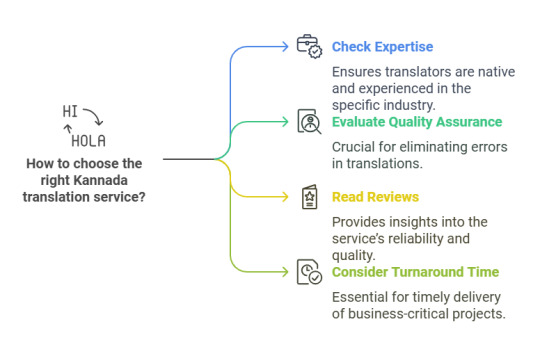
Check Expertise: Ensure the service has native Kannada translators with experience in your specific industry.
Evaluate Quality Assurance: A robust quality assurance process is crucial to eliminate errors.
Read Reviews: Client testimonials and reviews can provide insights into the service’s reliability and quality.
Consider Turnaround Time: Timely delivery is essential, especially for business-critical projects.
Look for Additional Features: Services like localization, transcription, and desktop publishing add value.
For those seeking expert Kannada translation services, PEC Translation offers tailored solutions to meet diverse requirements.
The Future of Kannada Translation Services
As India’s regional languages gain prominence in the digital landscape, the demand for Kannada translation services is expected to grow. With advancements in technology like AI-powered translation tools and machine learning, the industry is poised to offer even more efficient and cost-effective solutions.
However, while technology can aid translation, human expertise remains irreplaceable. The subtle nuances of Kannada and its cultural context demand the attention of skilled professionals who can deliver accurate and culturally appropriate translations.
Conclusion
Kannada translation services are more than a linguistic bridge; they are a gateway to new opportunities, connections, and understanding. Whether you’re a business expanding into Karnataka, an educator seeking to make your courses more accessible, or an individual needing legal or personal document translations, Kannada translation services can help you achieve your goals seamlessly.
Investing in professional Kannada translation services ensures not only linguistic accuracy but also cultural relevance, paving the way for meaningful engagement with Kannada-speaking audiences.
#kannadatranslation#document translation service#legaltranslation#certifiedtranslation#translationservices#translation#languageservices#accuratetranslation#professionaltranslation
0 notes
Text
Legal Translation in Immigration Processes: Why It Matters

For individuals and families navigating the immigration process, accuracy and clarity are everything. Whether you’re applying for a visa, permanent residency, or citizenship, the paperwork involved can feel overwhelming. One overlooked yet essential aspect of immigration applications is ensuring that all foreign-language documents are accurately translated into the official language required by immigration authorities. This is where legal translation services in Singapore play a critical role.
By providing certified and precise translations of important documents, legal translation services ensure that your application is not delayed or rejected due to errors or non-compliance.
Why Legal Translation Is Essential in Immigration Processes
Immigration is a legal process, and every document you submit must meet strict requirements set by government agencies. Immigration officers must understand and verify all paperwork to assess eligibility accurately. Documents written in a foreign language must be accompanied by certified translations to be considered valid.
Without professional legal translation, errors or inconsistencies—no matter how minor—can lead to application delays, requests for resubmission, or even outright rejection.
In Singapore, a global hub with a diverse population, legal translation services ensure that individuals from different linguistic backgrounds can successfully complete their immigration applications without hurdles.
Common Documents That Require Legal Translation Services

Visas and Residency Applications Whether you’re applying for a work visa, dependent pass, or permanent residency, government agencies often require supporting documents in their official language. Legal translation services ensure that key documents, such as employment contracts, offer letters, and sponsorship agreements, are accurately translated and certified for submission.
Marriage Certificates If you’re applying for a spousal visa or family reunification, marriage certificates issued in a foreign language must be translated and certified. An inaccurate translation could call into question the validity of your relationship, leading to unnecessary delays.
Birth Certificates Birth certificates are required for dependent visas, child immigration, or citizenship applications. Legal translation services ensure the document’s details—such as names, dates, and places—are translated with complete precision to avoid discrepancies.
Legal Affidavits and Sworn Statements In many immigration cases, individuals are required to submit affidavits, declarations, or sworn statements. These are legal documents that must be translated with exacting accuracy to preserve their meaning. Certified translations ensure that these documents meet the strict legal standards of immigration authorities.
Educational and Professional Credentials Immigration applications often require proof of qualifications, such as academic transcripts, diplomas, or professional certifications. Legal translation ensures these documents are accepted and recognized by government agencies and employers alike.
Divorce Decrees or Custody Agreements For individuals with prior marriages or dependent custody arrangements, divorce decrees or custody agreements must be submitted to clarify family status. Legal translation services ensure these sensitive documents are handled with professionalism and confidentiality.
Why Certified Translations Are Non-Negotiable
In immigration processes, authorities require certified translations to verify the accuracy and authenticity of foreign-language documents. Certified translations typically include:
A statement of accuracy signed by the translator or translation agency.
The credentials of the translator.
The official seal or stamp of the translation provider.
By using professional legal translation services in Singapore, you ensure your documents comply with immigration regulations. Certified translations not only add credibility but also give immigration officers confidence in the accuracy of your submissions.
Benefits of Using Professional Legal Translation Services in Singapore

Accuracy and Expertise Legal translation is not just about converting words—it requires an understanding of legal terminology and context. A professional legal translator ensures that every detail, from dates and names to complex legal terms, is translated accurately.
Compliance with Immigration Authorities Inconsistent or uncertified translations are often rejected by immigration agencies. Professional translation services guarantee compliance with legal standards, reducing the risk of rejection.
Confidentiality and Security Immigration paperwork contains sensitive personal information. Reputable translation providers in Singapore prioritize confidentiality and use secure systems to handle your documents.
Timely Delivery Immigration processes are often time-sensitive, and delays can have serious consequences. Professional legal translation services deliver high-quality work within tight deadlines, ensuring your paperwork is submitted on time.
Recognition Across Borders Certified translations provided by recognized agencies are accepted not only in Singapore but also by authorities worldwide. This is particularly important for individuals applying for immigration across multiple jurisdictions.
When to Seek Legal Translation Services
If you’re unsure whether your documents require translation, it’s always best to consult your immigration lawyer, agent, or local immigration office. In most cases, any document not written in the receiving country’s official language will need a certified translation.
For those applying to Singapore’s Immigration and Checkpoints Authority (ICA) or Ministry of Manpower (MOM), professional legal translation services in Singapore can help you navigate requirements and avoid pitfalls that may slow down your application.
Final Thoughts
The immigration process is already complex enough without language barriers adding to the challenge. Ensuring your documents are professionally translated is not just about ticking a box—it’s about eliminating risks, building trust with immigration authorities, and giving your application the best chance of success.
By partnering with a reliable legal translation service in Singapore, you’re investing in accuracy, compliance, and peace of mind during an already stressful journey. After all, when your future depends on a stack of paperwork, can you afford to leave any detail to chance?
#legaltranslation#certifiedtranslator#singaporetranslator#translation company#immigrationtranslator#immigration#immigrationdocuments
0 notes
Text

🖋️ Need professional Legal Translation Services in Dubai? Noor Alhiba is here to ensure your legal documents meet all standards with precision and care. 🌟 From agreements to certifications, we’ve got you covered! 💼 Let us help you navigate legalities effortlessly.
Contact us today to get started! 📞 +971 545254356 ✉️ [email protected] 🌐 www.nooralhibatranslation.com
#NoorAlhiba#LegalTranslation#LegalTranslationDubai#CertifiedTranslation#DubaiServices#TranslationExperts#DocumentTranslation#Legaltranslator
0 notes
Text
Certified Translation Services| Certified Document Translation Services| Professional Document Translation Services| Birth Certificate Translation Services| Death Certificate Translation Services| Divorce Certificate Translation Services| Marriage Certificate Translation Services| USCIS Certified Translation Services|Traductor in Fort Lauderdale| Traductor Español Ingles| Traductor de Ingles a Español| Traduccion al ingles Phone: 850-398-4645 Website: https://versatilelanguages.com GMB: https://lnkd.in/dBEjgPYV
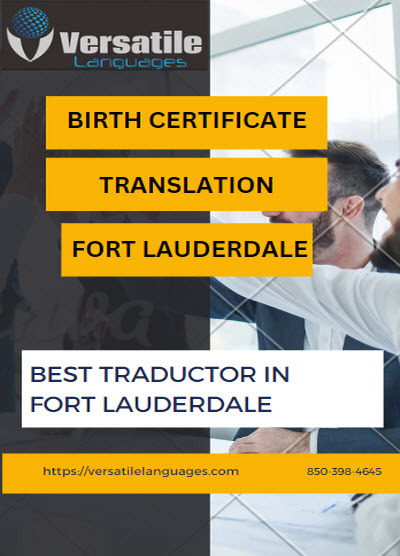
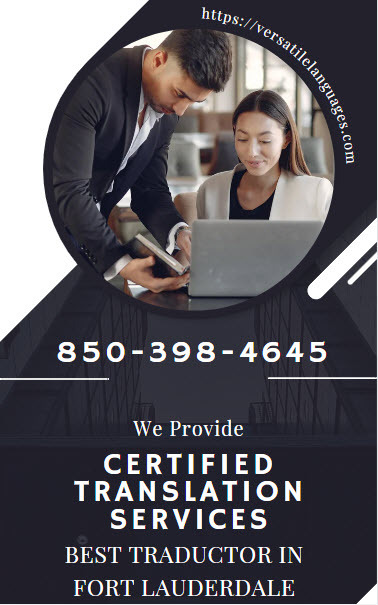

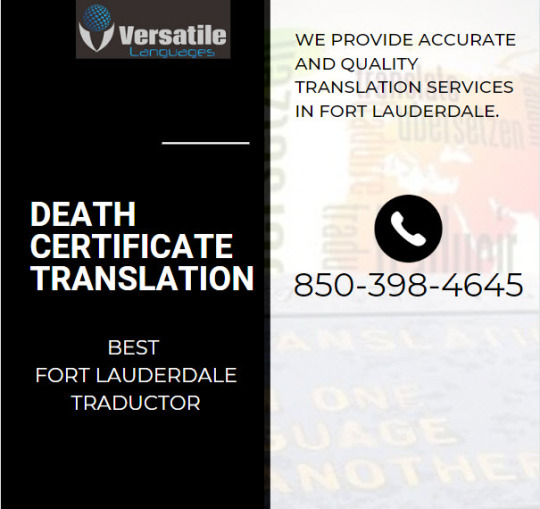
#Telephonic#interpreter#interpretation#birthcertificate#marriagecertificate#deathcertificate#divorcecertificate#uscis#DMV#certifieddocumenttranslation#certifiedtranslator#certifiedtranslators#certifiedtranslationservices#diplomatranslationservices#professionaltranslationservices#certified#translation#services#diploma#spanish#spanishtranslationservices#creole#french#Creoletranslationservices#frenchtranslationservices#spanishtranslator#frenchtranslation#frenchtranslator#traductor#uscistranslation
0 notes
Text
Professional English-Mandarin Chinese Translation Service
Learning alone without exchanges with others will lead to ignorance. 独学而无友,则孤陋而寡闻. For more information, visit https://www.morningstartranslation.com
#translation#editing#proofreading#localization#english to chinese translation#marketingtranslation#technicaltranslation#baniking#insurance#financial#certifiedtranslation#professionaltranslationservice#chinese language#linguistics#chiinese culture
2 notes
·
View notes
Text
Top Legal Mistakes Foreign Entrepreneurs Make When Starting a Business in Singapore
Starting a business in Singapore is an exciting prospect for foreign entrepreneurs, thanks to its strategic location, pro-business policies, and global connectivity. But for many, this process comes with unforeseen legal pitfalls that can delay or even derail their efforts. One of the most overlooked yet critical missteps is failing to submit properly translated legal documents, contracts, or business licenses—a mistake that can lead to costly misunderstandings and compliance issues.
Here’s a breakdown of the most common legal mistakes foreign entrepreneurs make when starting a business in Singapore—and how to avoid them.
1. Submitting Poorly Translated or Uncertified Documents
One of the first steps in registering a business in Singapore is submitting the necessary paperwork to authorities, such as the Accounting and Corporate Regulatory Authority (ACRA). Many of these documents—business licenses, articles of incorporation, contracts, and tax records—are often written in the entrepreneur’s native language.
Without a certified translation, these documents may not meet the requirements of Singaporean authorities. Worse, errors in translation can lead to misinterpretations, legal disputes, or outright rejection of your application.
Certified translation services ensure that your documents are translated accurately and recognized as valid by Singaporean institutions. This step is particularly crucial when dealing with contracts, where even a small mistranslation can lead to significant legal consequences.
Legal Tip: Always use a certified translation service that specializes in legal and business documentation. Ensure that the translator understands both the source and target languages, as well as the legal context, to avoid costly errors.
2. Ignoring Local Business Structure Requirements
Another common mistake is choosing the wrong business structure or failing to comply with its requirements. In Singapore, foreign entrepreneurs often register their businesses as Private Limited Companies (Pte Ltd) due to the limited liability and tax benefits they offer. However, some entrepreneurs fail to provide the correct documentation to validate their foreign ownership status.
Documents like shareholder agreements and proof of foreign directorship need to be correctly translated and formatted according to Singaporean standards. Any inconsistencies can result in delayed approvals or legal complications.
Legal Tip: Research the specific requirements for your business structure and provide certified translations of all supporting documents. Working with a corporate services provider familiar with Singapore’s business landscape can help streamline this process.
3. Overlooking Compliance with Employment Laws
If you plan to hire employees, understanding Singapore’s strict employment laws is non-negotiable. Employment contracts must adhere to the Employment Act, and any foreign hires will require work passes like the Employment Pass (EP) or S Pass. Submitting employment contracts in a language other than English without certified translation can lead to rejections or audits.
Additionally, some entrepreneurs fail to include mandatory clauses in employment contracts, such as details on working hours, leave entitlements, and termination policies, which can leave them exposed to legal action.
Legal Tip: Draft employment contracts in English and ensure foreign language additions are professionally translated and certified. Consult a local employment law expert to ensure compliance with Singaporean regulations.
4. Misunderstanding Taxation Rules and Double Taxation Treaties
Foreign entrepreneurs often make errors in interpreting Singapore’s tax regulations, especially if they’re unfamiliar with the Goods and Services Tax (GST) or corporate tax rates. For those operating businesses across borders, navigating double taxation treaties can be a challenge.
When submitting tax-related documents, such as invoices, financial reports, or proof of foreign tax residency, ensuring accurate translation is critical. Misinterpretations in tax language can trigger audits or penalties.
Legal Tip: Engage a certified translator experienced in tax documentation and work closely with a tax consultant who understands international tax laws.
5. Failing to Comply with Intellectual Property (IP) Regulations
In Singapore, safeguarding intellectual property is crucial for businesses. However, many foreign entrepreneurs fail to register their trademarks, patents, or copyrights correctly. Often, this is because the legal descriptions or claims in their native language are mistranslated or not aligned with Singapore’s IP standards.
An improperly translated IP application can weaken your legal claim and expose your business to infringement risks.
Legal Tip: File IP applications with the assistance of a legal expert and certified translation services to ensure your rights are fully protected.
Why Certified Translation Services Are Non-Negotiable
Certified translation services are not just a formality—they are a legal safeguard. Singapore is known for its efficiency and strict regulatory environment, and submitting incomplete or incorrect translations can cause significant delays or even legal penalties.
Whether it’s corporate registration documents, tax filings, or employment contracts, certified translations ensure that your business operates within the bounds of Singapore’s laws. Choosing a reputable translation service that understands the nuances of legal terminology can save you time, money, and unnecessary headaches.
Final Thoughts
For foreign entrepreneurs, the path to success in Singapore is paved with opportunities but fraught with potential missteps. Addressing the common mistakes outlined here—particularly the use of certified translations—can be the difference between a seamless start and an uphill legal battle.
Ultimately, launching a business in a new country is about more than just fulfilling requirements. It’s about building credibility, fostering trust, and demonstrating your commitment to compliance. The next time you’re preparing your documents for submission, consider this: Can you afford not to get it right the first time?
#certifiedtranslation#legaltranslation#businessinsingapore#singaporebusiness#foreignentrepreneurs#businessmistakes#legalcompliance#singaporelaw#notarizeddocuments#businessregistration#globalbusiness#expatbusiness#singaporestartups#legalrequirements#translationservices#corporatelaw#internationallaw#legaladvice#singaporeentrepreneurs#translationagency
0 notes
Text
#panamanian#panama#visitpanama#certifiedtranslator#naturalization#liveinpanama#panamanianlawyer#movetopanama#panamalawyer
0 notes
Text
youtube
0 notes
Text
Sworn Translation in Pune: Your Comprehensive Guide
In an increasingly interconnected world, accurate and certified translations play a crucial role in bridging language barriers. Whether you're submitting legal documents abroad, applying for foreign universities, or dealing with official paperwork in Pune, sworn translations are indispensable. This article explores the nuances of sworn translation in Pune, its importance, and how to get reliable services in the city.
What is Sworn Translation?
Sworn translation, also known as certified translation, is an official translation of documents by a translator authorized by a government or legal authority. These translations carry legal validity and are often required for official purposes, such as immigration, legal proceedings, academic applications, or business transactions.
In India, sworn translators are authorized to ensure that the translated document is accurate and faithfully represents the original. The translation is signed, stamped, and often accompanied by a certification letter to confirm its authenticity.
Why Do You Need Sworn Translation in Pune?
Pune, as a thriving educational and business hub, sees a high demand for sworn translations. Here are some common scenarios where sworn translation services in Pune are essential:
Immigration Processes: If you are applying for a visa, citizenship, or permanent residency in another country, official documents like birth certificates, marriage certificates, or police clearances need to be translated by a sworn translator.
Academic Purposes: Students applying to universities abroad often need sworn translations of their academic transcripts, degree certificates, and letters of recommendation.
Legal Proceedings: Sworn translations are vital for presenting foreign-language documents in Indian courts or submitting Indian documents abroad for legal cases.
Business Expansion: Businesses expanding internationally may require translations of contracts, agreements, patents, or other legal documents to comply with local regulations.
How to Find Reliable Sworn Translation Services in Pune?
When looking for sworn translation services in Pune, it is essential to choose a provider with the right qualifications, expertise, and reliability. Here are some tips to find the best services:
Look for Certified Translators: Ensure the translator is authorized and recognized by a competent authority. In India, this could include professionals registered with notarial offices or government-certified agencies.
Check Experience and Specialization: Different types of documents require specific expertise. A translator specializing in legal documents may not be equally proficient in technical or academic translations. Choose a service with experience in the specific type of document you need.
Verify Reviews and Recommendations: Online reviews, testimonials, and recommendations from previous clients can give you a clear picture of the quality and reliability of a translation service.
Ask About Timelines: Sworn translations often come with strict deadlines. Ensure the provider can deliver within your required timeframe without compromising on quality.
Compare Costs: While quality should never be compromised, comparing rates across multiple service providers ensures you get value for your money.
Benefits of Hiring Sworn Translators in Pune
Opting for a professional sworn translation service in Pune offers several advantages:
Accuracy and Reliability: Sworn translators are trained professionals with expertise in their fields, ensuring precise translations that maintain the meaning and context of the original document.
Legal Recognition: Documents translated by sworn translators are legally recognized in India and abroad, making them acceptable for official purposes.
Confidentiality: Professional translators follow strict confidentiality protocols, ensuring your sensitive information remains secure.
Time Efficiency: With their expertise and resources, sworn translators can complete translations efficiently, saving you time during urgent processes.
Comprehensive Services: Many translation agencies in Pune offer additional services like notarization, apostille certification, and legal consultations, making them a one-stop solution for all your documentation needs.
Top Sworn Translation Services in Pune
Here are some reputed sworn translation service providers in Pune:
Pune Translations: Known for their quick turnaround times and expertise in multiple languages, Pune Translations is a trusted name for sworn translations in the city.
Lingua World Services: With a team of certified translators, Lingua World Services specializes in legal, technical, and academic document translations.
Globe Lingua: This agency provides sworn translations for a wide range of documents and also offers allied services like notarization and legalization.
ProLingo Solutions: ProLingo Solutions is a preferred choice for businesses and individuals alike, offering accurate translations at competitive rates.
Commonly Translated Documents
Some of the most frequently translated documents in Pune include:
Birth certificates
Marriage certificates
Educational transcripts
Degree certificates
Employment contracts
Business agreements
Court orders
Medical records
Financial statements
Steps to Obtain Sworn Translation in Pune
Identify the Required Documents: Determine which documents need translation and confirm if sworn translation is mandatory for your purpose.
Select a Service Provider: Research and choose a reliable sworn translation service in Pune.
Submit the Documents: Share the original documents with the translator. Ensure the documents are legible and complete.
Review the Translations: Once the translation is complete, review it for accuracy before the final certification.
Obtain the Certified Translation: Receive the signed, stamped, and certified document ready for submission to the relevant authority.
Conclusion
Sworn translation in Pune is a critical service for individuals and businesses dealing with official and legal documents. By understanding its significance and choosing the right service provider, you can ensure a seamless and hassle-free process. Whether for personal, academic, or professional purposes, Pune offers a variety of skilled sworn translators to meet your needs.
Are you looking for reliable sworn translation services in Pune? Don’t hesitate to explore reputable providers and streamline your documentation process today!
0 notes